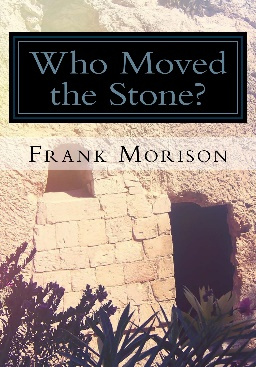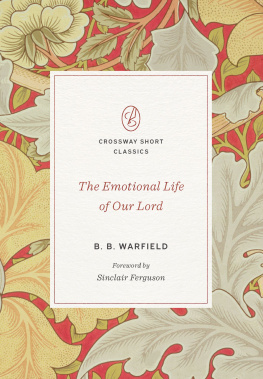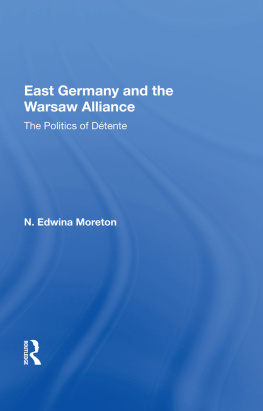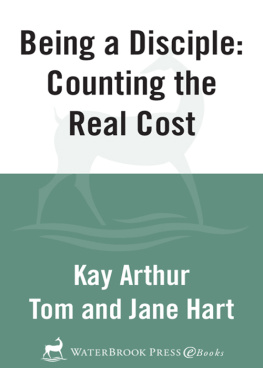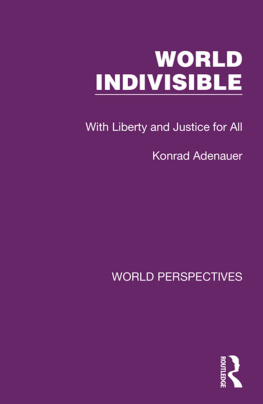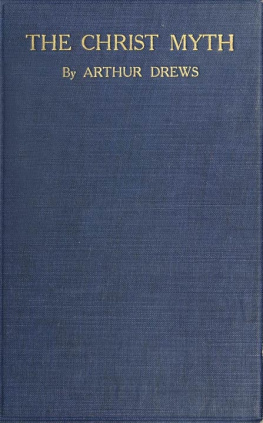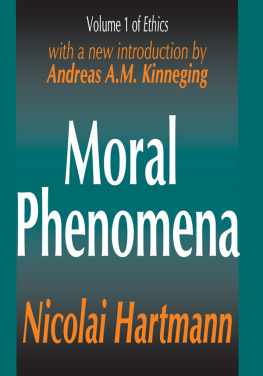CHRISTLESS CHRISTIANITY
BENJAMIN B. WARFIELD
Princeton Theological Seminary .
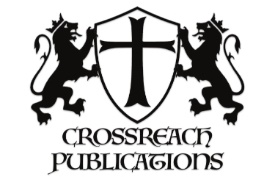
Hope. Inspiration. Trust.
Were social! Follow us for new titles and deals:
FaceBook.com/CrossReachPublications
@CrossReachPub
Available in paperback and eBook editions
Please go online for more great titles
available through CrossReach Publications.
And if you enjoyed this book please consider leaving
a review online . That helps us out a lot. Thanks.
2017 CrossReach Publications
All rights reserved, including the right to reproduce
this book or portions thereof in any form whatever.
INTRODUCTION TO THE MODERN CROSSREACH EDITION
We are pleased here at CrossReach Publications to bring this important historical and scholarly work back into print for the modern reader.
For most of our works this is the first time they have been fully digitized and updated into a modern format for a general public to enjoy in both paperback and eBook editions.
We are proud of the fact that our publications therefore are one of the most readable editions of these works on the market. All original spelling is usually retained unless stated otherwise, except for obvious spelling mistakes.
Most of our works also retain the original footnote numbering systems as they appeared in the original works, which will explain any unusual numbering you spot on the page. But dont worry, the footnotes are still logical and easy to follow.
The Team
CrossReach Publications
CHRISTLESS CHRISTIANITY
The Christ Myth by Arthur Drews was published early in 1909,1 and before the year was out its author was being requisitioned by dissidents from Christianity of the most incongruous types as a promising instrument for the general anti-christian propaganda. Few more remarkable spectacles have ever been witnessed than the exploitation throughout Germany in the opening months of 1910 of this hyper-idealistic metaphysician, disciple of von Hartmann and convinced adherent of the Philosophy of the Unconscious, by an Alliance the declared basis of whose organization is a determinate materialism. As, under the auspices of the Monistenbund, he made his progress from city to city, lecturing and debating, he drew a tidal-wave of sensation along with him. A violent literary war was inaugurated. It seemed as if all theological Germany were aroused.
In one quarter there was an ominous silence. The Conservative theologians looked on at the whole performance with bitter contempt. When twitted5 But the artillery which the Liberal theologians have hurriedly trained upon the denial shows how little they can really let it go at that. It is only the Conservative, secure in the possession of the real Jesus, who can look serenely upon this shameful folly and with undisturbed detachment watch the wretched comedy play itself out.
Only the Conservative,and, we may add, the extreme Radical. For there is a Radicalism, still calling itself Christian, so thoroughgoing as to fall as much below concernment with the question whether Jesus ever lived as Conservatism rises above it. The Conservative looks with unconcern upon all the pother stirred up by the debate on the historicity of Jesus, because he clearly perceives that it is all (if we may combine Harnacks and Troeltschs phraseology) scandalous nonsense, unworthy of the notice of anyone with an atom of historical understanding. The Radical looks upon it with unconcern because in his self-centred life Jesus has no essential place and no necessary part to play: the question whether Jesus ever lived is to him a merely academic one. An interesting episode in Drewss lecture-tour through the Germanic cities brings this point of view before us with strong emphasis. A discussion was contemplated at Bremen also, and the Monistenbund there extended an invitation to the local Protestantenverein to take part in it. This invitation was decisively declined, and the Protestantenverein took a good deal of pains to make it perfectly plain why it was declined. The Protestantenverein was not quite clear in its own mind that the whole business was not merely an advertising scheme for the benefit of the Monistenbund; though, to be sure, it could not see what Monists as Monists have to do with the question whether Jesus ever lived, more than whether Socrates ever lived, or Bacon wrote Shakespeares plays. The Protestantenverein, moreover, for itself felt entirely assured on good historical grounds of the historicity of Jesus, and had no interest in threshing out old straw. But it was on neither of these grounds that it declined to take part in the debate, but precisely because it was a matter of no importance to it whether Jesus ever lived or not. All the theologians of the Bremen Protestantenverein, they formally explain, are agreed that the question whether Jesus lived is, as such, not a religious but a historico-scientific question. It would be sad for Christianity as a religion if its right of existence hung on the question whether anybody whatever ever lived, or anything whatever ever occurred, even though it be the greatest personalities and the most important events which are in question. Every true religion lives not because of accidental truths of history, but because of eternal truths of reason. It lives not because of its past, more or less verifiable and always subject to the critical scrutiny of historical science; but because of the vital forces which it every day disengages afresh into the soul from the depths of the unconditioned. All the great religious forces of Christianitytrust in the Living God, elevated moral self-respect, sincere love of menare quite independent today of all question of the historicity of Jesus, and therefore this question can without fear be left in the hands in which it belongs,in the hands of untrammelled historical criticism. Whether Jesus existed or not, is for our religious and Christian life, in the last analysis, a matter of indifference, if only this life be really religious and Christian, and preserve its vital power in our souls and in our conduct.6
There is asserted here something more than that religion is independent of Jesus. That was being vigorously asserted by the adherents of the Monistenbund; and as for Drews, his Christ Mythlike the Christianity of the New Testament of his master, von Hartmann, before itwas written, he tells us, precisely in the interests of religion, and seeks to sweep Jesus out of the way that men may be truly religious. With the extremities of this view the members of the Bremen Protestantenverein express no sympathy: they are of the number of those who profess and call themselves Christians. What they assert, therefore, is not that religion merely, but distinctively that Christianity is independent of Jesus. They do not declare, indeed, that Christianity, as it has actually existed in the world, has had, in point of fact, nothing to do with Jesus; or that Christians of todaythey themselves as Christianshave had or have no relations with Jesus. They are convinced on sound historical grounds of the historicity of Jesus; they recognize that he has played a part in setting the movement called Christianity going; they draw, no doubt, inspiration from his memory. What they cannot allow is that he is essential to Christianity. They are conscious of standing in some such relation to him as that in which an idealistic philosopher stands, say, to a Plato. In point of fact such a philosopher reverences Plato, and derives from him inspiration and impulse, perhaps even instruction. But had there been no Plato, he would be able to do very well without a Plato. So Christians may in point of fact owe not a little to Jesus, and they may be very willing to acknowledge their indebtedness. But Christianity cannot be dependent on Jesus. Though there had been no Jesus, Christianity would be; and were his figure eradicated from historyor even from the mind of mantomorrow, Christianity would suffer no loss. The sources of its life, the springs of its vitality, lie in itself: it may owe much to a great personality, teaching it, embodying it; it cannot owe to him its being.
Next page
